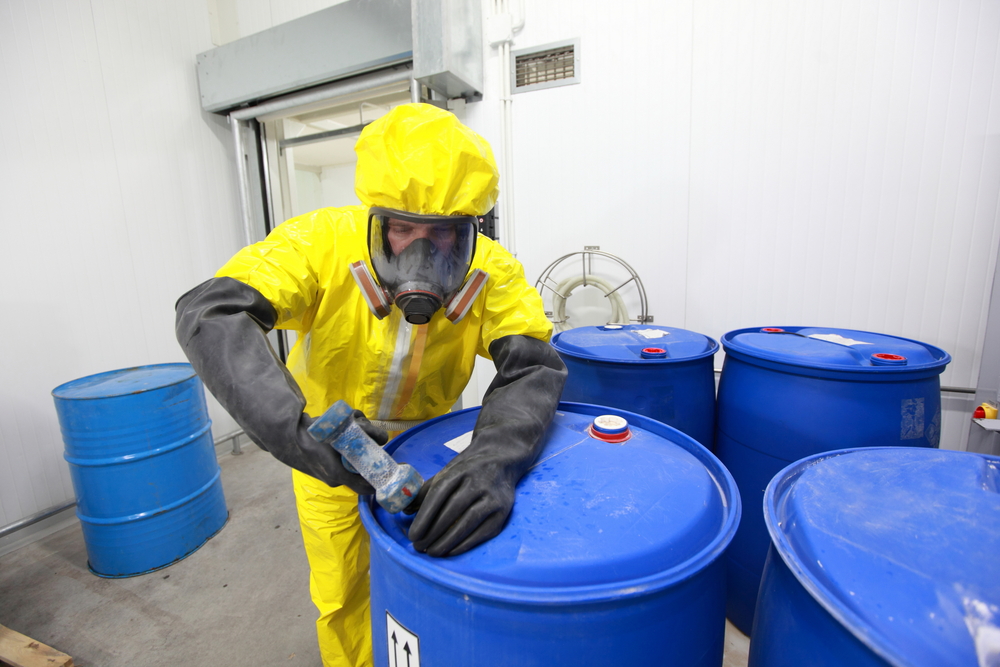Industrial businesses, particularly the manufacturing industry, use thousands of chemicals to create energy, make consumer goods, and produce other types of chemicals for various purposes and applications. The most common industrial chemicals include sulfuric acid, ethylene, sodium hydroxide, propylene, and nitrogen.
In this post, you’ll learn the good reasons why properly storing chemicals is important in industrial businesses. By doing so, you can practice safe handling and storage of chemicals. In return, you’ll avoid harming human health and the environment.
Avoid Fire and Explosion Incidents
Liquefied Petroleum Gas (LPG) is a versatile fuel that’s widely used in the manufacturing industry, such as heat processing, production packing materials, food production, and powering almost any kind of machinery. It’s also a mainstay in the food industry, hotels, bakeries, restaurants, resorts, and other commercial businesses worldwide.
Here are the important reasons why you need to store and handle LPG safely:
- LPG is composed of propane and butane, so it’s highly flammable. Avoid storing LPG near possible sources of ignition. It should be stored in an area that’s properly ventilated so that any leak from the tank can disperse safely.
- LPG vapor is heavier than air. Possible leakage is difficult to disperse since vapor goes to the ground.
- As temperature rises, LPG also expands. Whenever an LPG container or LPG tank is filled, there should be sufficient space left to allow expansion. Use high-quality storage areas, such as Storemasta chemical storage tanks.
- LPG deteriorates plastics and natural rubber. That’s why it’s advisable to use a hose that’s specifically for LPG.
Avoid Chemical-Related Injuries and Evacuations
Proper storage of chemicals is vital, most especially in industrial businesses because of the higher risk of chemical spills and mishandling. The Centers for Disease Control & Prevention (CDC) reviewed chemical accidents in nine states and laid out the top five industries for injuries and evacuations caused industrial chemicals (carbon monoxide, hydrochloric acid, ammonia, chlorine, and sulfuric acid) between 1999 and 2008.
Here are the details of the report:
- The data were collected by the Agency for Toxic Substances & Disease Registry from New York, Washington, North Carolina, Iowa, Minnesota, Oregon, Texas, Colorado, and Wisconsin.
- It shows in the report that the top five industries for chemical-related injuries and evacuations include chemical manufacturing, educational services, food manufacturing, truck transportation, and utilities.
- The chemical manufacturing industry has the most injured people with a total of 1,753. While the truck transportation sector has the most chemical-related incidents, with injuries at 516.
Quickly Identify Chemicals and the Risks Involved
Because industrial businesses use thousands of chemicals, proper storage and labeling are essential to avoid workplace injuries and reduce, or totally eliminate harm to the environment. Keep track of all chemicals you’re using in the business by keeping a list of all the substances, including the amounts usually used along with the health and safety risks associated with them.
Here are some safety tips when storing and handling industrial chemicals:
- Chemicals should be stored in the original packaging. If you need to take smaller amounts of the chemical, make sure that the new packaging is suitable for the substance.
- Labeling should follow the instructions of the original packaging. Check the substance that the packaging contains and the risks involved.
- All chemical products should be stored and labeled properly by following the instructions on the work safety sheet. You need to have a safety data sheet for all flammable chemical products and are hazardous to human health or the environment.
- Never store chemicals together with gas cylinders and flammable materials.
- Don’t store alkalis and acids together. Don’t store organic substances and strong acids together. Lastly, don’t store strongly oxidizing substances together with oxidizing substances.
- Store ethers in a cool, dark, and tightly sealed containers, along with other peroxide-building substances. Store chemical containers with closed lids when not being used.
- Chemicals should not be stored in freezers or refrigerators that are intended for storing food.
- Chemical stores shouldn’t have open floor drains. Otherwise, install floor drain protection to prevent chemical leakage.
- Equipment for cleaning up and handling spillage must always be ready or accessible and suitable for the stored chemicals.
- The fire classification of storage rooms and lockers should match the amounts and types of chemicals stored.
Conclusion
Handling chemicals can be disastrous to the point that mishandling it can ruin your entire business. That’s why proper storage of industrial chemicals is important in industrial businesses to reduce the risk of fire, explosion, and leakage or spill that can be hazardous to human health and the environment.
Chemicals that are flammable and hazardous to safety and health must be listed. Proper contingency and safety measures should be readily available.




